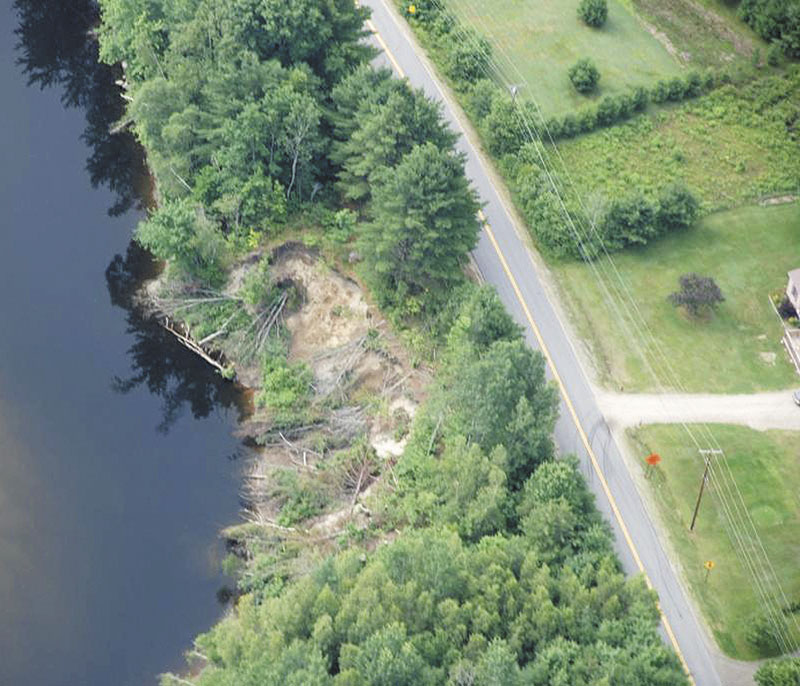FARMINGTON — Municipal leaders have gone to Maine’s federal legislators to ask for help with an eroding riverbank that threatens a major road in town.
Meanwhile, the Federal Emergency Management Agency and the U.S. Fish and Wildlife Service are meeting this week to see whether a $277,170 bank stabilization project on the Sandy River can move forward. Local officials are worried about the erosion affecting nearby Whittier Road.
“We need your help in this matter,” said the Board of Selectmen in a letter to U.S. Senator Susan Collins and U.S. Congressman Mike Michaud.
When a 50-foot-wide, 300-foot-long section of the river collapsed into the water near the Pillsbury Sand Bar during Tropical Storm Irene last August, the remaining riverbank began crumbling away.
In April, the town applied for money from the federal emergency agency to cover most of the cost of the project. In order to have the request approved, a variety of federal agencies need to verify that the project won’t violate federal laws.
There is concern from the federal wildlife service that the project could have a negative impact on protected salmon in the river.
Selectmen expressed concern about the length of time it could take to process the application, which has already been in the pipeline for four months.
“We are aware of the delays that others in the area have experienced regarding response time of the USF&W,” they wrote. “Our community cannot afford any further delays.”
As the eroding riverbank steadily approaches the edge of the road, the possibility of a road collapse grows.
The bank has moved to within 30 feet of the road and has lost 9 feet in the last three months.
Board members said that if the road is threatened, it could add roughly $400,000 in costs to the project, open the town to lawsuits and create traffic problems for the community, including for school buses and emergency vehicles.
JoAnn Mooney, the state’s hazard mitigation officer, said that the federal agencies are meeting to determine whether the project can be given a green light without violating federal law.
One outcome could be a requirement that the town address environmental concerns by modifying the project, a step that local officials would like to avoid.
“I can kind of see both sides of it, because each entity has something to protect,” Mooney said.
“You’re dealing with an emergency situation for a town, and you’re dealing with an entity (that) if their context is that they’re protecting something, they may say, ‘We think you need to do this in order to protect that.'”
Matt Hongoltz-Hetling — 861-9287
mhhetling@centralmaine.com
Send questions/comments to the editors.



Success. Please wait for the page to reload. If the page does not reload within 5 seconds, please refresh the page.
Enter your email and password to access comments.
Hi, to comment on stories you must . This profile is in addition to your subscription and website login.
Already have a commenting profile? .
Invalid username/password.
Please check your email to confirm and complete your registration.
Only subscribers are eligible to post comments. Please subscribe or login first for digital access. Here’s why.
Use the form below to reset your password. When you've submitted your account email, we will send an email with a reset code.